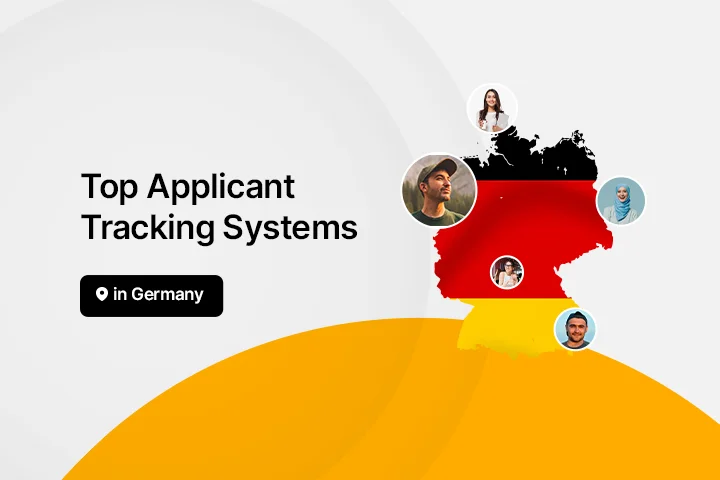Companies using predictive analytics in recruitment report a 20-30% increase in employee retention rates, emphasizing the value of data-driven hiring.
Qureos integrates AI to automate resume screening and prioritize top-tier talent, reducing hiring time by up to 70%.
Talent matching focuses on skills, culture, and alignment, ensuring better hires and minimizing turnover for long-term success.
Talent matching is revolutionizing how companies identify and recruit the right candidates for their roles. In fact, according to a study by Deloitte, 42% of companies believe that talent matching and skills alignment are critical to future workforce planning. In today’s dynamic job market, finding candidates with the required skills and aligning with a company’s culture is more crucial than ever.
Research by Glassdoor reveals that organizations with a strong cultural fit experience 30% less turnover, emphasizing the importance of aligning candidates’ values with company culture. This article delves into talent matching, explores the role of technology like AI in recruitment, and highlights advanced techniques to streamline hiring processes.
What is Talent Matching
Talent matching is the process of aligning a candidate's skills, qualifications, and interests with the specific requirements and cultural values of a job or organization. Unlike traditional recruitment methods, which often focus solely on resumes, talent matching evaluates a broader spectrum of candidate attributes, including soft skills, work style preferences, and career aspirations.
This approach ensures companies hire capable employees and reduce turnover by fostering better job satisfaction and alignment. Platforms like Qureos, known for using technology-driven approaches, empower businesses to identify top-tier talent efficiently.
Suggested: Top Applicant Tracking System in Turkey
What is Meant by Job Matching?
Job matching is a subset of talent matching, focusing primarily on aligning a candidate’s technical skills and experience with a role’s specific requirements. While job matching often relies on data like resumes and job descriptions, modern tools enhance this process by incorporating personality assessments, culture fit analyses, and predictive analytics to ensure a better match.
Suggested: Top Applicant Tracking System in Jordan
The Role of AI in Talent Matching
Artificial Intelligence (AI) is a transformative force in recruitment, enabling companies to find the best talent efficiently and effectively. Here's how AI-powered tools are revolutionizing talent matching:
Automating Resume Screening
AI algorithms can analyze thousands of resumes in seconds, accurately identifying key skills, qualifications, and relevant experiences. A study by Ideal found that 52% of talent acquisition leaders consider resume screening the most challenging part of recruitment, highlighting the importance of automation. AI-powered tools save time and ensure that only the most relevant candidates make it to the next stage of the hiring process, enabling recruiters to focus on strategic decision-making.
Reducing Bias
Bias in hiring is a critical issue, with up to 79% of hiring managers admitting to unconscious bias in recruitment processes (Harvard Business Review). Machine learning tools address this by evaluating candidates based on objective criteria, such as skills and experiences, rather than demographic or personal factors. This results in a fairer, more inclusive recruitment process that promotes diversity and ensures equal opportunities for all candidates.
Predicting Success
Advanced algorithms can analyze historical hiring data and performance metrics to forecast a candidate's likelihood of thriving in a specific role. According to a LinkedIn report, companies using predictive analytics in recruitment see a 20-30% increase in employee retention rates. These insights enable recruiters to make data-driven decisions, reducing turnover and ensuring that new hires contribute meaningfully to organizational goals.
By integrating AI technology, companies streamline their talent-matching process and enhance the quality of their hiring outcomes. Platforms like Qureos leverage these innovations, empowering organizations to recruit effectively in a competitive market.
Platforms like Qureos integrate AI in recruitment, offering employers access to tools prioritizing the best candidates for their unique needs. Companies can use machine learning to focus on high-value activities, such as interviews and strategy, rather than manual screening.
Suggested: Top Applicant Tracking System in Lebanon
What Are the Benefits of Using Talent Matching Platform?
Using a Talent Matching Platform offers numerous benefits for both employers and job seekers. These platforms leverage advanced technologies, such as AI and machine learning, to match candidates with suitable job roles more effectively and efficiently than traditional recruitment methods. Here are the key benefits of using talent matching platforms:
1. Enhanced Candidate Matching
Talent matching platforms use algorithms to analyze resumes, skills, and job descriptions to match candidates with the best-fit roles. These platforms can identify the most suitable candidates by analyzing experience, skills, location, salary expectations, and cultural fit, providing employers with a more precise candidate pool.
2. Increased Hiring Efficiency
Talent matching platforms significantly reduce hiring time by automating much of the candidate search and initial screening process. Recruiters no longer need to manually sift through countless resumes or spend hours on initial candidate assessments. This leads to faster hiring cycles and quicker talent acquisition, benefiting both companies and candidates.
3. Broader Talent Pool
Talent matching platforms give employers access to a broader, more diverse talent pool, including passive candidates who may not actively be searching for jobs but are open to new opportunities. With global platforms, companies can even explore international talent markets, expanding their options and ensuring they find the best candidates for their roles.
4. Cost-Effective Recruitment
These platforms can lower recruitment costs by automating many of the manual tasks associated with recruitment, such as screening and initial interviews. Companies no longer need to rely on external agencies or spend significant resources on advertising and sourcing candidates, leading to cost savings in the long run.
5. Improved Candidate Experience
Talent matching platforms provide candidates with a smoother and more personalized experience. With AI-driven recommendations, candidates are more likely to be matched with roles that align with their skills and aspirations, increasing the likelihood of successful placements. The platform’s user-friendly interface and instant feedback enhance the candidate experience.
6. Data-Driven Insights
Talent matching platforms provide employers with valuable insights into their hiring practices, such as the time-to-hire, candidate sourcing channels, and diversity metrics. This data can help organizations refine their recruitment strategies, identify areas for improvement, and make more informed, data-driven decisions.
The Future of Talent Matching in Recruitment
As the job market evolves, talent matching will continue integrating new technologies and methodologies. Companies that embrace tools like AI, data-driven recruitment platforms, and internal talent pipelines will remain competitive by attracting and retaining top talent.
Platforms like Qureos are leading the way, providing innovative solutions that address the unique challenges of modern recruitment. Whether you’re a small business or a multinational corporation, investing in the right talent-matching tools is the key to building a workforce that drives success.




